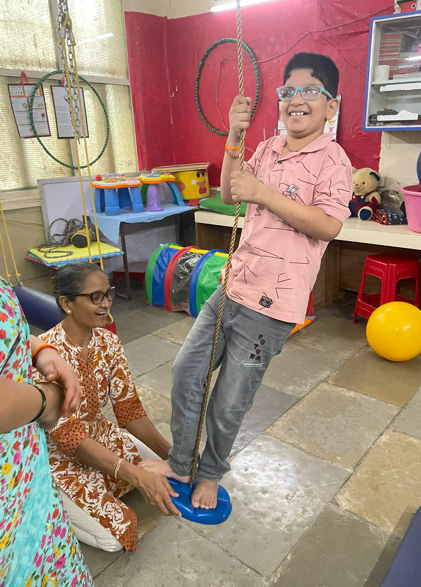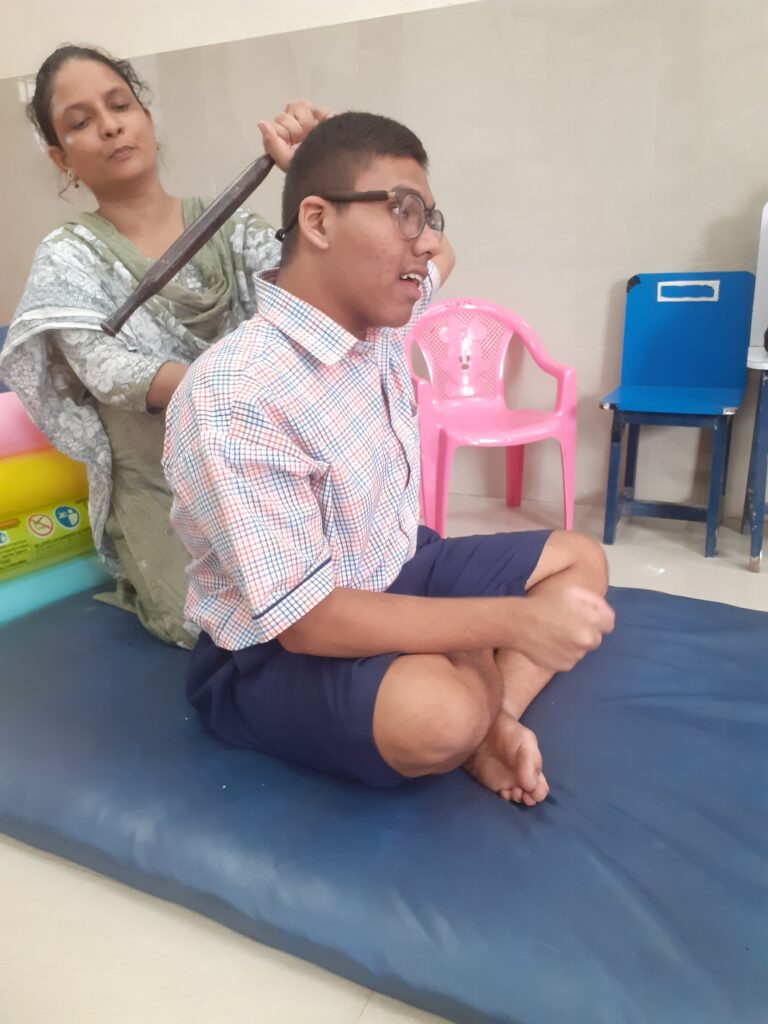Therapeutic services

Many children with Deafblindness may have additional disabilities, which further complicates their situation. They may exhibit an aversion to touch, experience disrupted sleeping patterns, suffer from overall poor health, and encounter feeding difficulties. They may repeatedly seek strong sensory stimulation through specific channels or display unusual postures and distractibility.
Furthermore, they may have ongoing medical problems that escalate the degree of vision or hearing loss. The constant stress and frustration they face may result in behaviour that is withdrawn and passive or volatile and aggressive. Addressing the root causes of these behaviours requires an understanding of the ongoing effects of sensory deprivation and the ability to modify the child’s instruction to mitigate these effects.

The sight loss or hearing loss are also usually permanent, and irreversible. Consequently, the intervention approaches used by occupational therapists/ physiotherapists are more likely to be compensatory rather than restorative.
A compensatory approach aims to manage, not change the individual’s needs within their new limitations, maximizing their independence.
As the impact of sensory impairment varies from person to person, our therapists consider each student’s sensory impairment in the context of their occupational engagement and ability to function in their own environment.
To manage the impact of sensory impairment, they employ various compensatory approaches, such as reorganizing the environment, adapting tasks, or teaching new strategies to help the learner self-manage their needs.
The involvement of family members is integral to the assessment and treatment process, as parents/caregivers play a crucial role in establishing new routines and ensuring successful outcomes in achieving daily goals.
